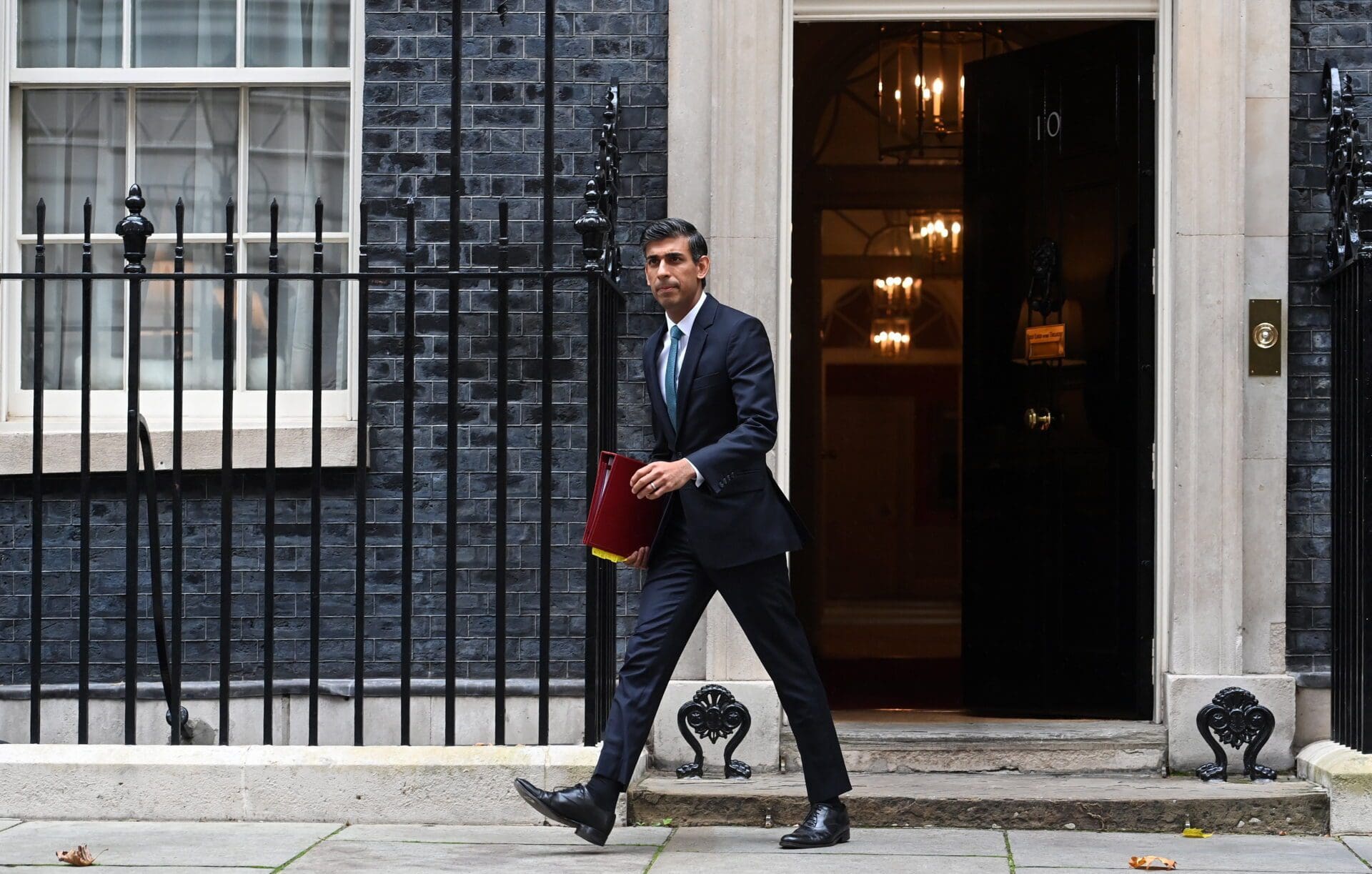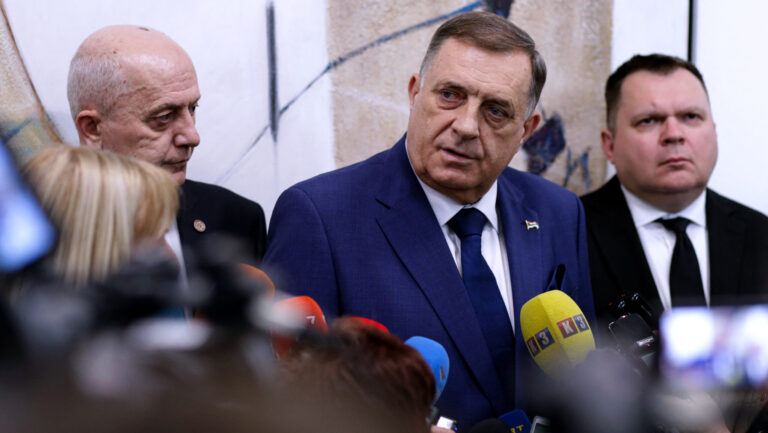While seven weeks ago few would have predicted it, Tuesday saw the triumphant installation of the man who finished a distant second in the Tory leadership race this summer.
Truss’s Mistakes Paved the Way for Sunak
Boris Johnson and Liz Truss, Rish Sunak’s two main political adversaries, have lost and are not expected to win again. With the Conservative Party standing with him, the market turmoil in the UK is gradually abating. Sunak had warned in the summer that Truss’ economic policies may lead to an ‘inflationary spiral,’ which would probably increase interest rates, but polls at the time suggested that his message was not well received by the Tory grassroots.
Within a fortnight of Truss taking office, his warning proved to be justified. Truss’s mini-budget, full of unfunded tax cuts and published without any prior Office for Budget Responsibility analysis of British public finances, frightened the world’s financial markets, leading to an abrupt turnaround. But by that time, the pound had plunged to record lows against the dollar and the cost of borrowing for the government rose. It is currently anticipated that the Bank of England will raise interest rates to 6 per cent by the end of the year, boosting home expenses for millions of mortgage holders and making company investment challenging.
Hurdles Ahead
Sunak’s followers may indulge in a fleeting moment of self-satisfaction over their decision, but their man now confronts a number of difficult obstacles. After two drastically different programmes were proposed under Truss during her six weeks in office, his new administration must first finalize a package to assist individuals and businesses in paying their skyrocketing energy bills. More generally, he must work to balance the UK’s books at a time when the National Health Service and other state agencies are already strained to breaking point, possibly by tax increases and spending reductions.
As one Sunak-supporting Tory MP noted, Sunak is limited in a manner he might not have been had he defeated Truss in the first place, due to the markets’ pressure for Britain to overcorrect following the chaos of Truss’s mini-budget. Sunak is also faced with a formidable challenge in trying to turn around the Conservative Party, which has been in power for 12 years but is currently floundering in the polls. Unless new leader completely departs from what has been labelled as Trussonomics in favour of more economically interventionist measures to provide jobs and growth to poorer sections of the country, the Onward think tank forecasts that the Tories will perish.
Convinced that Sunak is a capable leader and a safe pair of hands, many Tory MPs think that he is now without a doubt their best choice to take on opposition leader Keir Starmer. However, even with Truss gone, the Labour Party is still optimistic about their chances in the next general election, which is probably going to be held in 2024 or January 2025.
Hungarian Reaction to Sunak’s Election
The Hungarian administration has expressed an intention to work closely with Rishi Sunak. The UK has been a significant ally of Viktor Orbán’s government in recent years. The prime minister of Hungary sent a letter on Monday night congratulating Rishi Sunak on being elected prime minister of the United Kingdom. In the message released by the press secretary of the prime minister, Orbán stated that Hungary and the United Kingdom have excellent bilateral relations and the cooperation of the two countries is founded on shared values, common interests, and long-standing historical ties.
‘As like-minded allies and partners, it is absolutely crucial that we further improve the intensity of our already close cooperation during these difficult times of multiple crises, when the challenges are directly impacting our citizens. I want to take this occasion to reiterate our commitment to strengthening the ties between Hungary and the UK and to fostering closer ties between the UK and the EU,’ the PM wrote.
UK Still Viewed as Important Ally
Since 2010, Viktor Orbán’s administrations have paid close attention to the UK. Prior to Brexit, the government of Hungary viewed the UK as a crucial friend in safeguarding national sovereignty since Conservative governments opposed the further centralisation of power in the EU, or as former Prime Minister David Cameron phrased it, the ‘ever closer union.’ It is no accident that it was only Orbán and Cameron who opposed Jean-Claude Juncker’s nomination as President of the European Commission in the European Council following the 2014 European Parliament elections. However, the government of Hungary was concerned about Britain exiting the Union. In an attempt to dissuade UK citizens from leaving the EU, the Hungarian government even published newspaper ads in the country urging Britons to vote to stay in the run-up to the Brexit referendum.
Analysing the effects of Brexit, Balázs Orbán, the political director of the prime minister, told conservative weekly Demokrata last week: ‘The British people have consistently upheld their country’s economic competitiveness and sovereignty within the EU, striking a balance with other EU members and the German-French alliance. We were aware that the British were the Union’s and our region’s long-term allies as long as they remained in. But now that they are gone, they are more interested in dividing the continent, just as it was part of British national strategy for decades before they joined the EU.’
Viktor Orbán also discussed the detrimental effects of Brexit at a recent panel discussion in Berlin. The idea of a federal Europe was never supported by the British, the prime minister opined, but now that they have left, the federalists are in the majority in the EU. He argued that the pro-sovereignty dynamics that had been present in the previous thirty years would have persisted if Britain had not left the EU.
After the April general elections, then-Prime Minister Boris Johnson congratulated Viktor Orbán and described bilateral ties as ‘excellent.’ Foreign Minister Péter Szijjártó said it was good news that Johnson survived the vote of no confidence in June since he had always treated Hungary with great respect and had relentlessly worked to improve bilateral ties while serving as the UK’s foreign minister. When Viktor Orbán congratulated Liz Truss on her election as prime minister less than two months ago, he confirmed that ‘Hungary will remain a loyal ally of the United Kingdom.’
Related Articles:








